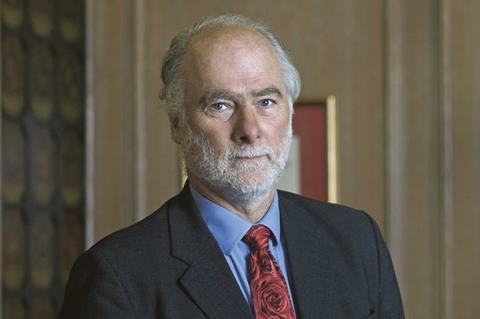The current legal aid scheme is broken beyond repair and should be replaced with a National Legal Service that would put the interests of people with legal problems first, two prominent solicitors have said.
Roger Smith and Nic Madge unveiled the blueprint for their proposed vision at a Legal Action Group event in Westminster last night to mark 10 years since the controversial Legal Aid, Sentencing and Punishment of Offenders Act came into force.
Smith is a former director of Legal Action Group and Justice. Madge spent five years at Camden Community Law Centre and 10 years at Bindmans, and was also a district and circuit judge.
The authors described the legal aid scheme as one of the great post-war reforms of the Attlee government that helped to shift the balance of power within society and provide justice for the many, not the few.
‘Now though, it is broken beyond repair,’ they said in their paper. ‘Over the past 13 years, it has been destroyed. It has been eviscerated by legislative changes, starved of resources and ruined by poor management. It is time to start again with a new vision.’

That ‘new vision’ is a National Legal Service ‘that would put the interests of people with legal problems first, in the same way that the National Health Service puts the interests of people with health problems first’.
Four ‘preconditions’ underpin the new vision for access to civil justice: strategic leadership, the new National Legal Service, investment in innovation and technology, and a sustainable financial basis.
The National Legal Service’s functions would be divided into three tiers: initial early information and advice, digital plus, and legal representation in negotiations and litigation.
Law centre finances would be placed on a sustainable, long-term footing and national charities that provide legal advice and representation would be brought within the National Legal Services brand.
The future potential of artificial intelligence services such as ChatGPT and Google Bard ‘could play a significant role in providing legal services in appropriate situations’.
Guests at last night’s event, held in the Thatcher Room at Portcullis House, included shadow attorney general Emily Thornberry MP, Andy Slaughter MP, a member of the House of Commons justice select committee, and solicitor-MP Rebecca Long-Bailey.
The Ministry of Justice said its civil legal aid review, announced in January, will assess how civil legal aid systems work in other comparable countries and include publications of further data on how civil legal aid is accessed and delivered across England and Wales to help inform future decisions. Once complete, the government 'can consider options from the review for moving to a more effective, more efficient and more sustainable' legal aid system.
This article is now closed for comment.



























31 Readers' comments